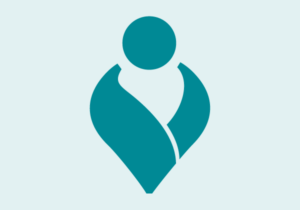Depression
Everyone has an occasional case of the blues or feeling sad or down. However, these feelings should come and go. When the blues won’t go away — especially if they come along with other symptoms such as anxiety or feelings of worthlessness — this could be a sign of depression.
Clinical depression is a medical condition that affects mood and can change how you feel, think and behave. It can interfere with your daily activities, such as working or sleeping. In severe depression cases, it might even make you feel as if you don’t want to live anymore.
Symptoms of Depression
- Persistent feelings of sadness, hopelessness, pessimism or emptiness
- Anxiety
- Feelings of worthlessness, helplessness or guilt
- Irritability, anger and outbursts — even over very small issues
- Loss of interest or pleasure in activities and hobbies you used to enjoy
- Fatigue and loss of energy
- Restlessness
- Difficulty concentrating, making decisions or remembering
- Sleep problems, such as not being able to fall asleep or oversleeping
- Gaining or losing weight without trying
- Changes in appetite
- Physical symptoms, such as cramps, pains, headaches or digestive issues
Different Ages, Different Symptoms
Depression can occur any time from childhood through late adulthood. Many of the symptoms are the same, but there are a few signs of depression that change with age.
For example, children and teens are more likely to have anger and irritability as their main symptoms, rather than sadness. On the other hand, feelings of sadness or hopelessness might be more common on older adults, as they watch loved ones pass away or start to think about their own end of life stage.
It can also be a little harder to spot. A teenager’s outburst may be attributed to being a rebellious teen, or an elderly person’s sadness might seem to be just a sign of getting older — when in reality, these could be signs of depression.
Causes of Depression
There isn’t one clear cause of depression. Currently, researchers believe that it may be a combination of a few different genetic, biological, environmental and psychological factors:
Diagnosing Depression
Depression is generally diagnosed by talking to your physician or a mental health professional, who will ask you about your symptoms, feelings, thoughts, and behaviors.
Sometimes, your provider may want to run a few other tests. Lab tests and physical exams can point toward other medical conditions, such as thyroid disease, which could be contributing to your depression.
Treatment for Depression
Learning that you have depression might actually be a good thing — it means you can start recovering. And fortunately, treatment for depression is usually very successful.
The most effective treatments are medication (antidepressants), psychotherapy, or a combination of both.
Depression can affect your health on many different levels, including mentally, emotionally, physically, and socially. Some of the most common symptoms and signs include:
Getting Help for Depression
The first step of treatment is realizing that you need to get help — but sometimes, that can be the hardest step.
If you think that you may be depressed, do not be embarrassed or ashamed to ask for help. Depression is extremely common, and it is not a sign of weakness. In fact, getting the care you need makes you stronger.
Talk to your primary care provider if you’re not sure where to go. They will be able to refer you to the right place, run tests to make sure the depression is not being caused by another medical condition, and help you manage symptoms.
If you feel suicidal — as if you don’t want to live anymore and want to take steps to end your own life — call 911 or get emergency help right away. You can also call a suicide hotline number. In the US, call (800) 273-TALK (800-273-8255) to reach the toll-free, 24/7 National Suicide Prevention Lifeline where you can speak with a trained counselor.
Help End the Stigma
It’s difficult to watch someone you love experience depression, especially when you think they need help that they’re not currently getting.
Although it might seem awkward or uncomfortable, bring it up with your loved one. Let them know what you’ve been noticing and why you’re concerned. Instead of using an accusatory tone, make sure they know that you’re having the conversation because you love and care about them, not because they did something wrong.
If they agree that they need help, offer to be with them along their journey. Help them find a provider, make a list of things to ask, and get to their appointment. Remind them that you’ll be there for them the whole time.
Ultrasound

Overview Diagnostic ultrasound, also called sonography or diagnostic medical sonography, is an imaging method that uses high-frequency sound waves to produce images of structures within your body. The images can provide valuable information for diagnosing and treating a variety of diseases and conditions. Most ultrasound examinations are done using an ultrasound device outside your body,…
Eating disorders

Overview Eating disorders are serious conditions related to persistent eating behaviors that negatively impact your health, your emotions and your ability to function in important areas of life. The most common eating disorders are anorexia nervosa, bulimia nervosa and binge-eating disorder. Most eating disorders involve focusing too much on your weight, body shape and food,…
Meet the Team
Our Behavioral Health Care Location
Stormont Vail Health Manhattan Campus
1325 Research Park DriveManhattan, KS 66502











